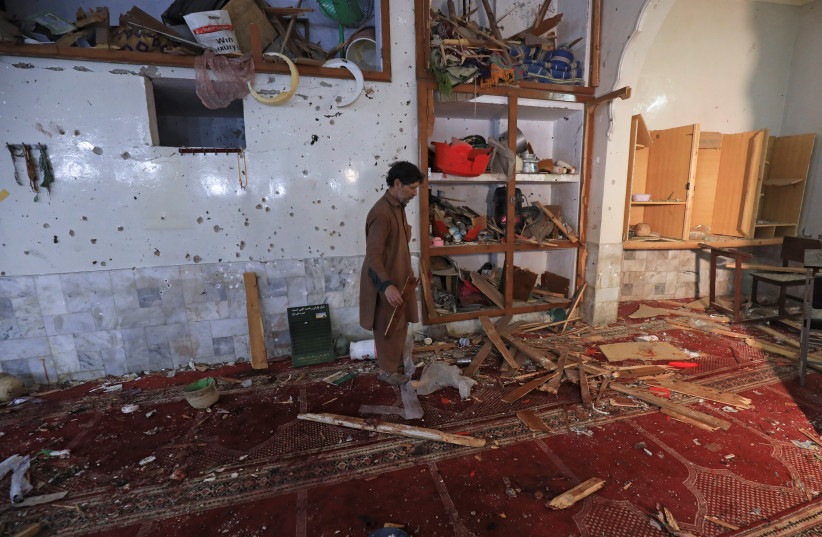An attack on a mosque in Peshawar that killed at least 32 people on Monday illustrates that the murderous terror threat to Pakistan and the region has far from disappeared.
Pakistan has long been a target of terrorist attacks, often focused on massacring members of minority groups, such as Shi’ites. This attack targeted police during prayers at a mosque. It is clear that the group behind it is not only powerful but able to penetrate right into the middle of where security forces are present.
The attack coincided with a visit by Pakistan’s Foreign Minister Bilawal Bhutto Zardarito to Moscow on Monday. Zardari is set to meet with Russian Foreign Minister Sergey Lavrov, who recently came back from South Africa.
In the 1980s, Pakistan and Russia were on opposite sides of the Afghan war. Today, however, they may have some things in common regarding Pakistan, along with other regional issues.
Russia also has close ties with India. Pakistan has appeared to waffle when it comes to backing extremists like the Taliban, but also the very terrorists who have grown up in the extremist milieu the government has fostered since the 1980s.

Pakistan is politically torn
Pakistan is also torn politically, with opposition figure former prime minister Imran Khan – a far-right political leader who in the past appeared to appease the Taliban – still trying to return to power.
It is not clear if the Pakistani Taliban, which are a local, more vicious version of the Taliban that also run Afghanistan, are behind the attack. The large number of civilians killed may mean that they will not take responsibility because the attack took place during prayers in a mosque, a huge violation of the site’s sanctity.
However, they and other extremist groups have attacked mosques routinely in the past, targeting the Shi’ite minority. In March of last year, ISIS claimed responsibility for an attack on a Peshawar Shi’ite mosque that killed dozens.
Targeting masses of police at prayer is a new escalation. Four weeks ago, Al Jazeera reported that the Pakistan Taliban threatened top Pakistani leadership. Qatar had backed the Taliban’s return to Afghanistan. Al Jazeera is based in Qatar, so it is unclear what Qatar’s agenda is. Pakistan also may be facing other hurdles, like support from Saudi Arabia.
It appears that Afghanistan is being used to launch attacks on Pakistan. A recent report at TheDiplomat.com claimed the United States and Pakistan were working together against the terror threat.
Khan condemned the attack, as has Turkey and other politicians and states. Pakistan will have to see if it can come to grips with this terror threat.
The country suffered these kinds of attacks for two decades now. Some believed that the return of the Taliban would stabilize Afghanistan and enable the extremists to be rounded up. It is clear now that this is not the case. The Taliban in Afghanistan are suppressing minorities and women.
Another recent report claims that weapons left behind in Afghanistan after the US withdrawal are being trafficked to extremists in Kashmir.
NBC reported this week that “authorities in Indian-controlled Kashmir tell NBC News that militants trying to annex the region for Pakistan are carrying M4s, M16s and other US-made arms and ammunition that have rarely been seen in the 30-year conflict. A major reason, they say, is a regional flood of US-funded weapons that fell into the hands of the Taliban when US-led NATO forces withdrew from Afghanistan in 2021.”
This is a dangerous development and shows how weapon trafficking threatens peace in the region. It has also been responsible for attacks on Israel and the growth of extremism in Jenin and throughout the West Bank.
There, the presence of M16s and M4s has also been an issue. Those rifles likely do not come from Afghanistan, but probably somewhere closer to the West Bank. This shows how the murderous terrorism that threatens Pakistan is also linked to threats in Kashmir and Israel.
